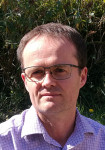“It was exactly 10 years ago that I discovered that my partner of six years was actually a policeman. He was a fictional character - his identity was fabricated and he was put into my life to deceive me, by his employer, who knew that one day they would remove him.”
The words of a woman who spent six years in an intimate relationship with undercover police officer Mark Kennedy. She is one of at least 30 women tricked into relationships with undercover police officers.
All told, the police are estimated to have infiltrated more than 1,000 activist and campaigning groups since the late-1960s.
When, in 2017, we published a review of the undercover policing of political protest, we warned that the police had built a near “impenetrable wall of silence” around their activities.
In the intervening years, nothing has changed. This week the lawyer for Doreen Lawrence, Imran Khan QC, told the public inquiry that she was “losing confidence, if she has not already lost it, in this inquiry’s ability to get to the truth; the truth as to why she, her family and supporters were spied upon by the police. This inquiry is not delivering on what she was promised and is not achieving what she expected”.
The police remain one of the most powerful, and unaccountable, agencies in public life. If a public inquiry cannot shed adequate light on some of the police’s most disturbing and sordid activities, many may wonder how they will ever be held to account.
Earlier this week I spoke at an event as part of the ESRC Festival of Social Science, hosted by the University of Birmingham on behalf of the ‘Is it a crime to be poor?’ alliance.
The prosecution and criminalisation of those living in poverty, I told the event, was nothing new. Karl Marx coined the ironic term “voluntary criminals” to describe the rural peasantry who, from the late-fifteenth century on, were transformed into vagabonds and paupers through expulsion from the land. It was assumed, Marx wrote, “that it was entirely within their powers to go on working under the old conditions which in fact no longer existed”.
Today’s “voluntary criminals” include those prosecuted for council tax and TV licence non-payment, for begging and rough sleeping. They could choose to pay, or not to beg or sleep rough, the implication appears to be, but choose not to do so.
In theory, I told the event, we may be equal before the law. In practice, the law reflects and reproduces the inequalities in wealth and power of British society. So it is that we devote a portion of our social wealth to processing as criminals those living in poverty, while failing to use that social wealth, or organise our society, in a way that stops them being poor.
I was saddened this week to learn of the death of David Faulkner. A former Deputy Secretary at the Home Office, David was a font of knowledge and wisdom on criminal justice policy. He was also a kind and gentle soul who was generous with his time.
